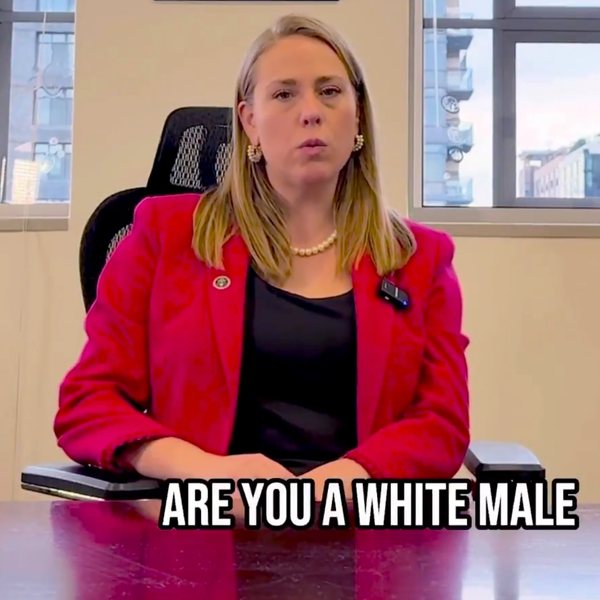
By David Lightman, McClatchy Washington Bureau (TNS)
WASHINGTON — Three times in recent days, people uttering slurs against African-Americans were quickly punished.
Yet such consequences are hardly automatic. Insults aimed at Muslims, Latinos, Jews, women, and others are routinely decried but also often defended as free speech. A congressman says something derogatory about immigrants, yet remains a power in politics. An activist-preacher slurs Jews and is later an adviser to a president.
Some offensive speech is punished. Some is protected. The line changes, and shifts over time.
The latest furor was triggered by a video showing University of Oklahoma Sigma Alpha Epsilon fraternity members singing, “You can hang them from a tree, but they’ll never sign with me. There’ll never be a (n-word) at SAE.”
A few days later, Univision fired talk show host Rodner Figueroa for saying first lady Michelle Obama looked like a cast member of “Planet of the Apes.” Last week, a Cleveland anchorwoman returned to the air after being suspended for using a term offensive to African-Americans.
Where, asked some experts, was their right to speak freely?
When terrorists killed French journalists who satirized Muslims, President Barack Obama led the Western chorus defending “a universal belief in the freedom of expression…that can’t be silenced because of the senseless violence of the few.”
Yet speech often is silenced, or at least punished.
In Oklahoma, University President David Boren quickly kicked the fraternity off campus. “I have a message for those who have misused their freedom of speech in this way,” he said. “You’re disgraceful.”
They apparently weren’t breaking any laws, and some questioned whether their right to speak was being compromised.
“Absent information that is not at our disposal, it is difficult to imagine a situation in which a court would side with the university on this matter,” the American Civil Liberties Union of Oklahoma said.
After all, “there is no crime in the U.S. called hate speech,” said Paul Butler, a professor of law at Georgetown University Law School, thanks to the First Amendment and a long string of court rulings.
Speech is often subject to two tests in this country: Whether it crosses a moral line that makes it impossible to defend in the court of public opinion, and whether it crosses a legal line.
Americans have become more willing, even eager, to express revulsion at slurs against long-oppressed minorities, particularly African-Americans.
Insults against Muslims and Hispanics do not stir the same sweeping rejection.
“We can permit free speech and at the same time say we are morally outraged,” said Daniel Wueste, director of the Rutland Institute for Ethics at Clemson University in South Carolina.
Dave Agema, a Republican National Committee member from Michigan, in October said that “camel jockeys don’t make good fighter pilots.” After other incendiary comments, the RNC’s executive committee censured him in January. He remains a member.
Two summers ago, Representative Steve King (R-IA), outraged young unauthorized immigrants.
“For every one who is a valedictorian, there’s another 100 out there that…weigh 130 pounds and they have calves the size of cantaloupes because they’re hauling 75 pounds of marijuana across the desert.”
Despite protests, King was re-elected easily, and in January he hosted the first Republican presidential forum of the 2016 campaign.
The Reverend Al Sharpton in the 1990s called a Jewish store owner a “white interloper” and referred to Jews as “diamond merchants.” He said that his store owner reference wasn’t meant to apply to all Jews and that his other comment was misconstrued. He is today an MSNBC anchor and an adviser to Obama.
This much has changed: Slurs are more easily detected and debated today.
It’s a fulfillment of a principle Supreme Court Justice Louis Brandeis expressed in 1927: “If there be time to expose through discussion the falsehood and fallacies, to avert the evil by the processes of education, the remedy to be applied is more speech, not enforced silence. Only an emergency can justify repression.”
The media is particularly sensitive since it must balance a need for audience-building with not alienating potential customers.
That’s why extremes only occasionally cross the moral outrage line, and why the line is drawn differently depending on the speaker and the audience.
Bill Maher called Sarah Palin a vulgar word and remains the host of a program on HBO. Martin Bashir called her an “idiot,” as well as more offensive names, and resigned from MSNBC.
At Univision, Figueroa was dismissed after saying Michelle Obama “looks like she’s from the cast of ‘Planet of the Apes,’ the movie.” “What are you saying?” asked hostess Lili Estafan. Figueroa defended his comment, saying, “But it is true.”
In Cleveland, television anchor Kristi Capel returned to the air recently after a three-day suspension for using the word “jigaboo,” a deeply offensive term for African-Americans. She apologized to viewers.
But conservative talk show host Rush Limbaugh remains on the air. Three years ago, he ignited a furor when he called Sandra Fluke a “slut” and a “prostitute” after the Georgetown law student found herself in the middle of a congressional battle over whether medical insurance should be required to pay for contraception.
The legal do-not-cross line is brighter.
Courts have long recognized two limitations on free speech rights. The fighting words doctrine allows the government to punish people for speech that might incite potential listeners to respond violently. In the Oklahoma matter, the test could involve whether an ordinary citizen hearing the chant would be likely to respond violently. The government may also prohibit hate speech if it is a “true threat.”
In the Oklahoma case, “The question is whether a reasonable person, notably a reasonable African-American, perceives an intent on the part of drunken fraternity members to harm them.” asked John Szmer, associate professor of political science and constitutional law expert at the University of North Carolina at Charlotte.
Probably not, because courts have given wide latitude to the expression of one’s views. Courts, he said, are careful not to engage in what he called viewpoint discrimination.
“If we stop the Nazis and the KKK, they have ruled, who’s to say that in some town in the South we can’t stop civil rights protesters?” Szmer asked.
Four years ago, the Supreme Court affirmed the right of Westboro Baptist Church to protest, from a certain distance, at military funerals with its fiercely anti-gay message. The court said the First Amendment protects even offensive funeral protests such as the church’s infamous “God hates fags” message.
“Racial or hateful intimidating speech — by itself — is not a hate crime,” said Michael Lieberman, Washington counsel for the Anti-Defamation League.
When speech is accompanied by action, it crosses the legal line, said Lieberman, who has helped draft federal and state hate crime laws.
It’s a tough balancing act between allowing people to speak freely and stopping them from doing harm. “It’s an experiment,” Lieberman said. “And so far the First Amendment has worked pretty well.”
Photo: Gage Skidmore via Flickr








